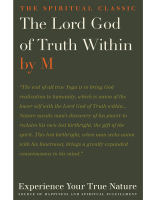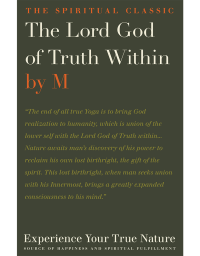Old people often trade on their age and shorten their lives by seeking to dominate their progeny. After death nature steps in and protects the children, and the spheres of communication between the living and the dead are cut off.
One often meets people of this description out of the body, unloved perhaps in life, their passions and desires still hold them to the densities of worldly illusion. Failing to realize that they are dead, they demand that the living carry out their wishes.
They want love, for it is love that links the living and the dead, but if they have limited the finer expression by attempted domination of their progeny they must pay according to the karmic law.
Unless the children have the power to escape or to sever the parental domination such parents place square pegs in round holes, and round pegs in square holes. The really strong soul can never be caged by authority and usually the boy or girl who leaves home is the support of the parents in old age. All souls without exception desire experience, and those relatives who are without tolerance are most pronounced in their effort to shape that experience into their own preconceived plan.
Men preach to and converse with relatives and friends, but are they tolerant toward them? Ask yourself if you are tolerant of your friend’s opinion, when it differs from yours, and do you love him as much.
The total disregard of other people’s opinions, when you differ with them, creates a maelstrom in the stream of life where there should be peace, happiness, and contentment.
Man’s inhumanity to man when he seeks to dominate the personalities of others, is injustice to nature. This is not serving the purpose of his creation. It is a means whereby one seeks to perfect his own experience, but is heedless of and disregards others whom he wrongs. Could such an one step into the presence and greatness of all time, he would see the shadows that he has cast behind him. He would feel the remorse and despair, the quenching of the happiness and joy of the innocent that he is responsible for. He would see himself as others had seen him and if he could return to the illusion world, he would seek to remedy the shadows and darkness that he had cast upon the faces of others, else he would hide himself away from his kindred.
The doctrine of emancipation, which brings man into the consciousness of the Reality, is the Yoga gift to humanity. You should try to find it in the hearts of other men, as well as seek it in your Innermost.
Every man carries about with him a torch lighted in the fire of his elemental nature. When this torch is ignited by nature’s truth, it will enlighten the horror in the world. When men carry this flaming torch of Truth, they acquire an understanding of nature; then the “lost voice crying out in the wilderness” will lead men to divine truth and inspiration.
In the Yoga teaching, when the student taps the consciousness of the lords of nature, he can analyze their austerity and the justice of their edicts, yet he can never perceive individuality of expression. He is conscious that the lords of nature are separate entities working together in harmony and union under the law which directs their environment. He discovers that the elements of air, fire, water, and earth are working in harmony, yet distinct from one another and in their atmosphere he always perceives the Presence, which also exists in the deeper states of Yoga.
Not only are there many exalted beings of the devic creation, but there are similar less powerful beings that group themselves about these more powerful intelligences of the higher elements. These beings make themselves known by sending an appropriate symbol to attract one’s notice. Association with these higher elemental forces brings new perception of the wonders of nature to the human mind. One deva, for instance, gives a vision of tiny brooks and rivers, and of water emptying itself into the great ocean. It may say to you that these brooks, streams, and rivers are the vital system of nature and that they, like the human body, have their periods of activity and rest.
Water, with its nourishment, brings activity into all nature, giving life and vitality to all growing things, but when it returns to the ocean, its mother, it has periods of rest; then it is again caught up into the clouds to refresh nature once more. The devas inform us that nature, in her “giving” to man, must have periods of rest, so that she can regain her normal strength. When man, in ignorance, works nature to exhaustion and does not allow the soil a fallowing time to regain its strength, nature steps in and penalizes his greed by using her forces of destruction.
Through ignorance man is a destructive force in nature. When he will not be guided by the wisdom of science, and the knowledge of his forebears, nature scourges him through droughts, pestilence, and famines, blotting out those civilizations that have destroyed God’s handiwork. The engineer atoms, which formerly fertilized the ground and brought forth abundant harvests, no longer carry on their labor, and they become discouraged by the introduction of alien agents into the soil, a practice which brings about abnormal growth, and activities entirely foreign to previous lines of direction.
Just as this is true in agriculture, so the human form is being developed to conform to the plan of the nous atom of the heart, and thus man’s form is constantly being brought from a lower to a higher tension of activity.
The nous atom, which is in the purest section of the blood stream, has legions of builder atoms serving the upkeep of the physical vehicle, so nature has similar atoms in the subsoil, to keep it true to its original plan. Similarly the devas keep the animals, trees, and plants true to their species. Hence you seldom find hybrids in nature. When man, in his ignorance, introduces seeds foreign to the soil’s natural element, he encounters the opposition of these atoms, which seek to render the new introductions harmless to the soil.
The mixing of other races with the native inhabitants of a country brings about a deterioration in the original native strain, for the parental stem is changed by the introduction of a foreign element, hence the progeny lack the stamina found in either species.
As we have indicated before, the lords of destruction scourge the world when men no longer call upon God for direction. The devas will show you land in its natural state, prepared for those who dig and delve in the field, with babbling streams and groves of trees and they will impress you with the happiness that exists in nature and her movements. Then they will show you the heedless cutting of trees and you witness the parching of the soil, and the drying up of the streams until all is an arid waste, and thus it remains until nature again promotes growth in that district.
There is a division of nature, enacting justice among outlaws in humanity and nature. The penalty of wrongdoing brings about a karmic effect, for karma is the law of cause and effect. When a man dies, although his crimes may have escaped justice, he must be tried before the bar of nature for the crimes which he has committed against her. But nature is just and places him in that environment which balances his wrongdoing, thus giving him the power to ascend slowly to a finer environment by right action.
The children of nature weep over man’s destruction, but their sorrows are hidden from mortal eyes. To them a tree is a work of God to be worshipped. The Chinese artist portrays symbolic clouds, which to the Western mind appear strange, but to them the clouds represent symbols of great hierarchal intelligences. Modern science says that the Chinese must be shortsighted, or they would not veil distant mountains in mist, but it has yet to discover that those artists never place the human form out of its place in a landscape. Always they place him in his true relationship to nature, and in his true position among the different elements. They express the sensitivity of a mind similar to that which the handwriting of a person may express.
Chinese handwriting, like a painting, stands alone in expressing the thought put into it, hence the careful observer can recognize the grossness or refinement of the writer’s character. The artist also becomes so skilled with his hand and arm that the hand instinctively follows the thought. In the finer lacquer work the Chinese will say, “Run your thought ahead of your line, and your brush will follow your thought.”
It is the same with a great violinist. His technique is so perfect that his actions obey his mind instantly. If you present a rose properly to a Chinese lady, she will present herself to you with the thought emotion which the rose had evoked in her mind, just as some of the early Russian dancers unconsciously responded to the character of expression which their mind had formed; for instance, their response to the thought of happiness or fear. When Coquelin, the great French actor, portrayed the gross and bestial man, all his movements were entirely different from those which he used when portraying the part of courtier. The true nature is shown in the manner people greet each other and in the way they shake hands.
The Western habit of shaking hands is a very bad one, for physical contact is an exchange of both good and bad conditions on the elemental or psychic planes, which can be transferred or taken on by the weaker person. I once knew a man to be obsessed for three days after shaking hands with a man who practiced the darker side of experimental magic, and it took some time to completely remove the condition. We were in a doctor’s office when the condition was removed and the financier, since dead, said, “I have been in hell for three days, for I have been dragged around by another intelligence; my real self I always found standing outside of me. Probably I appeared normal, but I was not myself. I found myself following my body, which was occupied by something else.”
The Chinese do not shake hands, they bow instead, keeping their hands clasped, which prevents the entrance to their body of anything of a psychic character. George Washington knew the value of this, for he always tried to avoid shaking hands with people, and after meeting his teacher he was known to smile only once. He learned that nature’s first pronouncement is that we must stand alone.
The student must seek to detach himself from all contacts harmful to the well-being of his natural man. In the Golden Age of Chinese civilization nature instructed their adepts in the wisdom teaching. Today, alas, Chinese scholars are not always clean in their clothing or persons. Like the hermits of old and the Bohemians of the Latin Quarter, cleanliness with them has ceased to be a godlike virtue. The sylphs are very drastic towards the student. Before he can enter the element of air, he must bathe two or three times a day, eat no animal food, and purify his mind, for he must obey the laws governing their realm. He is asked to observe and not ask questions until the proper time.
As the instruction is given, questions are answered by visions. Once, when I was living in Italy, I was wondering what the plague looked like, when suddenly three shining beings appeared. They looked at me and smiled, their shining raiment disappeared and they showed me how the plague looked in its three different stages on their nude bodies; then they resumed their shining garments.
This manipulation of mind stuff matter is most wonderful to behold, and in beauty of color, feature, and figure a beautiful sylphid can be so lovely as to be a veritable torture. If any impurity is allowed to enter the mind she vanishes, although her loveliness will increase in proportion to your love of purity. Here you gain the secret of Botticelli’s unreal reality of the human form, for a sylphid can show you her foot as Botticelli would paint it, her canons of art can be contrasted with those of Aphrodite by Praxiteles, and with nature’s bracelet just above the ankle, which you see in the masterpieces of the great Greek sculptors. She will show you a normal ankle and then, as she would have it. She will adorn her foot with various sandals of the different stages of Greece, or of the Roman period of Augustus, with bejewelled enrichment, and then back again to nature, with nature’s delicate rose tinted feet. In this display is loveliness incomparable! The rippling intensity of the smiles of a sylphid, the adornment and enjoyment in their walk, and their power of transforming themselves to show you the different types which abound in their realm is very marvelous.
Alas, it is this same beauty which often leads the student from his quest for truth and beauty! These contrasting beauties of the elements; the undine of water, with her pink pumice colored skin, and a certain heaviness which you do not find in the sylphid of the air, and her power of borrowing and absorbing from the student’s atmosphere. She is apt to lower the student’s vitality for a period. The sylphids, from the writer’s experience, do not do this. They merely express the joy of living movement and rhythm. They have a steel-like mentality, brilliant, but very compassionate, if sadness enters the heart. To my mind, their manifestations of love can best be analyzed as steely sweetness. Seemingly they have no kindred, and no patience with the love affairs and sex attraction of youth, and they do not forgive any dishonesty toward themselves. As one of them said to me, “Dishonesty dims the mirror of Truth.”
One must remember that there are different degrees of intelligence among the sylphs. In Tunis, there is a marabout, or Mohammedan priest, a miracle worker, who is married to one of these sylphids, by whom he has three children. People in the Mohammedan countries of Egypt and Northern Africa come very closely in touch with the elemental kingdom of nature, but in the West it is difficult to live a life close to nature, for these finer forces dislike man’s lack of consideration for nature and the sordidness of human creations.
Some of these lords of nature are terrible in their aspect, especially those found in the element of fire, for their mental pressure seems to speak through the entire universe, yet you are conscious of their infinite understanding and power. They can enlighten the mind in a flash and intelligence is in their words, for they can sum up in a single sentence the essentials of a situation which will enlarge the scope of the mind. They challenge your intelligence to think, and guide your thought in one direction only, until a large amount of information is acquired. One word leads to a train of thought, which seems to have no end, and a sentence is like a resounding thought which seems to extend through all the world.
Many human beings, who are strongly charged with the element of fire are quick thinkers, and are apt to be intolerant and always run ahead of the other fellow’s thought. In a word, you may sum these people up as Titans of thought.
All the different elements and their divisions are classified by a token or symbol. Each of their symbols, vibrations, and sounds have their higher counterparts, but these symbols are given to the student only when he is worthy and when he seeks to know God through his manifestations. We can attain union with the flame (light) by means of worshiping God through the element of fire; hence we get the word Chohan, one who seeks God Realization through the element of fire. We have always been impressed that beings, chiefly elemental in their bodies, will one day return to nature worship and adore God through nature’s consciousness. Even today some people are unconsciously nature worshipers.
There are many ways of approaching God, and this is the natural way. It was called paganism by the early Church, but every man must find his own path, which will be discovered through his aspiration to know God. We find “books in the running brooks, sermons in stones, and good in everything.” Mohammed has said, “To its own book shall every nation be summoned.” A sylphid once said to me, “Do you not realize that great teachers come to our spheres, as well as to yours, and that God is never apart from His creation?”
In dealing with this subject I do not wish to discourage anyone, whatever his religion may be, in his quest for Truth. I only wish to give out knowledge gained through Yoga practice, in order that a better understanding between man and nature may result. There are saints of many grades and religions, who work to bring about better conditions in this world of illusion. They are noble men and women who, in this life, have gained “at-one-ment” with the Lord God of Truth within—God Realization. In their desire to help the weaker members of humanity, they remain behind to assist in the enlightenment of their younger brothers.
The Yogi, in the deeper states of consciousness, often comes in contact with these great workers for humanity and by personal observation I have often witnessed their answers to the appeals of humanity, sometimes within a few moments. We learn to love these saints, who are constantly working in our midst toward their sovereign goal, both in and out of the body. It is only by our finer perception, which we have attained in our quest for Truth, that we can recognize the saint when we see him in our midst, but through the higher clairvoyance we recognize the “light” of these saints and seek to be of service to these little known members of humanity.
Those who have sunk the spirit deeply into their mind bodies are able to recognize those who seek service in the name of Truth. Often the perception gained through Yoga practice gives the student the power to know, and he is able to be of assistance to these future saints in their childhood.
It is one of the first duties of the student, after he has met his teacher (one of those enlightened ones), to render service to these innocents that their bodies may be well nourished and their natural gifts not too quickly developed at the expense of the physical body. Light comes to the Yogi student through unselfish service for the good of others, without regard to religion or creed. These enlightened ones are met in all classes of society, and in many creeds and religions.
Those who have received their first illumination have knowledge of their own limitations, and of the plan and activity of their lives. Those who really know their own limitations will not interfere with the affairs of others, and will work within a certain range of experience, which they know is their work and mission while on earth.
Some day, the great doctrine of emancipation, which is the gospel of nature’s consciousness, will be given to this world, and the world will then experience nature’s great healing powers. A great avatar, who lived long before the advent of Jesus, through sacrifice of himself, advanced our Iron Age nearer to the consciousness of nature, so that her truth and wisdom knowledge were made known to man. We must remember the information given to us by a great teacher, which brought happiness to many. He said, “Great souls foresaw the advent of Krishna, and they incarnated as common cowherds, in order to be with him. Krishna played on his flute, and danced throughout the night for them, in order to advance the Steel Age and this present Iron Age in which we are now living, taking on himself their karma, in order to advance it into a newer, cleaner age again.” The great avatars have also sacrificed themselves in order to enable humanity to enter more quickly into the presence of Truth.







